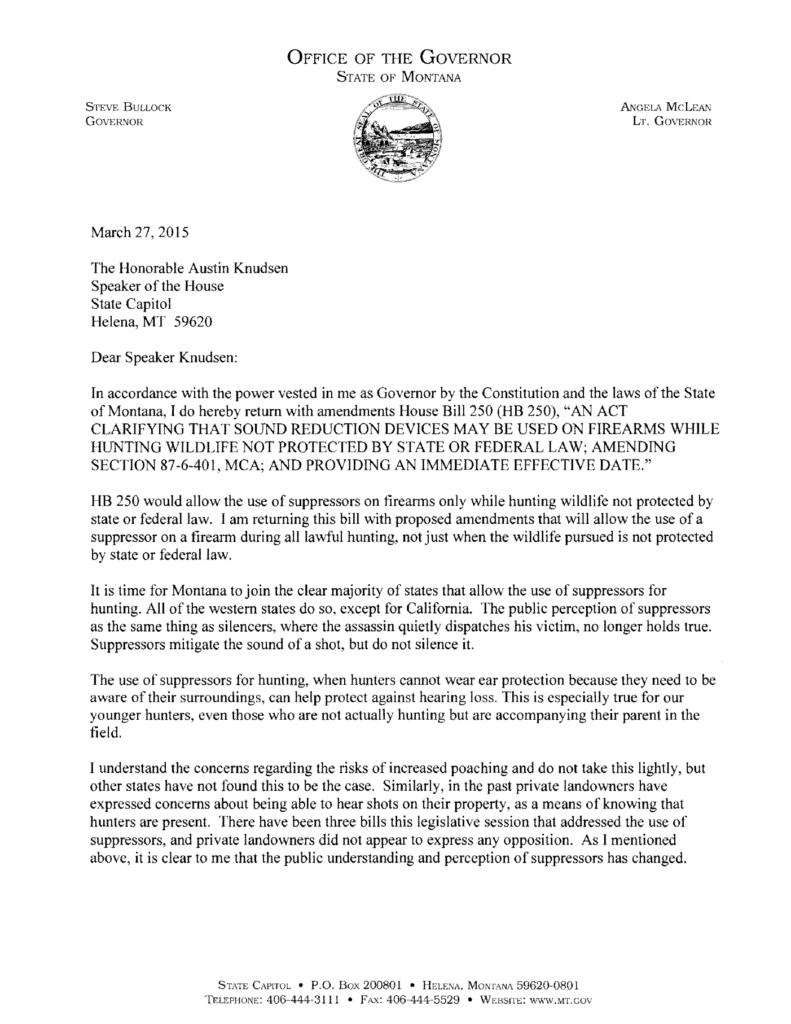SAFER HUNTING
Gunshots Are Loud
Everyone knows that gunshots are loud, and that shooting without hearing protection can cause tinnitus and noise-induced hearing loss. What many don’t know is that exposure to even a single unsuppressed gunshot can, and often does, lead to permanent hearing damage. Studies show that between 70 and 80% of hunters never wear earplugs or earmuffs.2 In fact, for every five years of hunting, hunters become seven percent more likely to experience high frequency hearing loss.3
Most hunters choose not to wear hearing protection in the field because they want to hear their surroundings. Suppressors are the only tool that allow hunters to maintain full auditory situational awareness while simultaneously attenuating dangerous sound levels at the source. The result is a safer hunting experience for hunters and nonhunters alike.
Hunters are safest when they are able to remain aware of their surroundings. The ability to hear approaching game can serve as the determining factor in a successful hunt. More importantly, being able to detect and localize the sound of livestock, pets, and nearby humans, especially when outside the hunters line of sight, can mean the difference between a safe and unsafe experience.
Traditional hearing protection devices (HPDs) like passive earplugs and earmuffs tremendously hinder the users ability to hear their surroundings and localize sounds. Electronic hearing protection devices can help users detect sounds, but are limited in their ability to accurately localize noise sources.4 The distinction may seem small, but detecting a sound and knowing where it came from are two very different things.
“The most serious threat to hearing comes from recreational hunting or target shooting.”1
— Dr. William W. Clark, Director of the Washington University School of Medicine’s Program in Audiology and Communication Sciences
1 Clark WW (1991) Noise exposure from leisure activities: a review. J Acoust Soc Am 90(1):175–181.
On average, suppressors provide similar levels of noise attenuation to traditional HPDs. When using a suppressor in the field, hunters can maintain open-ear conditions and reduce their exposure to dangerous sound levels. This allows hunters to retain full situational awareness while mitigating their hearing damage risk. Suppressors are also the only device that provides attenuation for everyone in the vicinity, including hunting guides, partners, and even dogs.
“Suppressors mitigate the sound of a shot, but do not silence it. The use of suppressors for hunting, when hunters cannot wear ear protection because they need to be aware of their surroundings, can help protect against hearing loss. This is especially true for our younger hunters, even those who are not actually hunting but are accompanying their parent in the field.”
- Governor Steve Bullock (D-MT) 2015 letter to Montana Speaker of the House
From a hearing conservation standpoint, the most comprehensive way to protect hearing is to use suppressors in conjunction with conventional hearing protection. We don’t tell people to stop wearing seatbelts if their car has airbags. The same principle applies to suppressors: the best way to protect your hearing is by using a suppressor while wearing traditional hearing protection devices. When it comes to protecting your hearing, there is no complete solution. Gunshots are simply too loud.
1 Clark WW. (1991) Noise exposure from leisure activities: a review. J Acoust Soc Am 90(1):175–181.
2 Wagner A, Stewart M, Lehman ME. (2006) Risk patterns and shooting habits of recreational firearm users. In: Abstracts of the National Hearing Conservation Association Annual Conference 2006, Tampa, Florida. NHCA Spectrum 23(Suppl. 1):28.
3 Stewart M, Foley L, Lehman ME, Gerlach A. (2011) Risks Faced by Recreational Firearm Users. Audiology Today, March-April:38–52.
4 Casali JG, Talcott K, Keady JP, Killion MC. (2011) Warfighter Auditory Situation Awareness. Human Systems Integration Symposium 2011: 1-12.








